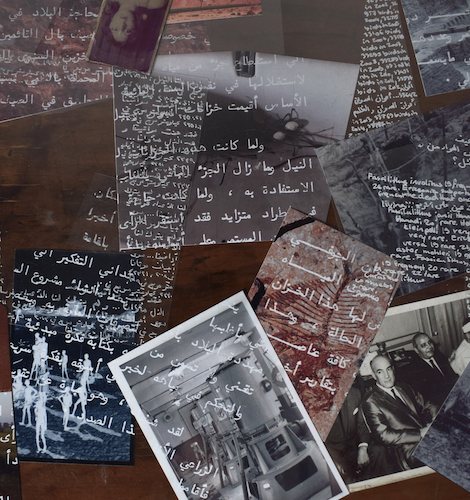Personal Archives: A Lens into reading Epistemic community in colonial time
Talk
Thursday, October 26, 2023, 7:00 pm
RSVP
In conjunction with The Valley of Walls
With a seamless blend of personal insights and empirical data, Kamal's archives offer a multifaceted look into the evolving dynamics of human-nature relations. In this presentation, we will read in parallel both documents from the British National Archives and some selected documents from Ahmed Ali Kamal's personal archives. By doing so, we will reflect on the language used by colonial powers to position Egyptian technocrats' role versus. how technocrats themselves saw their role, knowledge and expertise in their own diaries and words. We ask in this talk how knowledge production could be produced by personal records, spanning photographs, textual notes, and diaries? How could we find and read different archival sources that tell different parts of a story?
Yasmine Hafez conducts ethnographic and archival research to attempt to fill the gaps usually concealed in transboundary management discourses and practices, particularly related to the Nile River. In her master's, she conducted fieldwork in Addis Ababa, where she focused on analysing the Grand Ethiopian Renaissance Dam (GERD) through Ethiopia's historical, economic, and social grievances, recognising the pivotal role these grievances played in shaping the socio-political aspects of the dam's construction. She holds a Master of Arts (MA) degree with distinction in Conflict, Governance, and International Development from the University of East Anglia (UEA). Before that, she obtained her Bachelor of Arts (BA) degree in Political Science with double minors in Economics and Community Development from the American University in Cairo (AUC). For her PhD project, Yasmine shifted her focus to the lakes and wetlands in the Nile Basin countries after extensive fieldwork conducted in various fishing hubs around Lake Victoria in Uganda and Kenya and the transboundary wetland in-between, as well as in Egypt around the Delta Lakes, namely: Lake Burullus, Lake Mariout, and Lake Edko through her research, she delves into the colonial histories of these lakes, the neoliberal interventions that have shaped these water bodies, and the fishermen’s everyday experiences.


